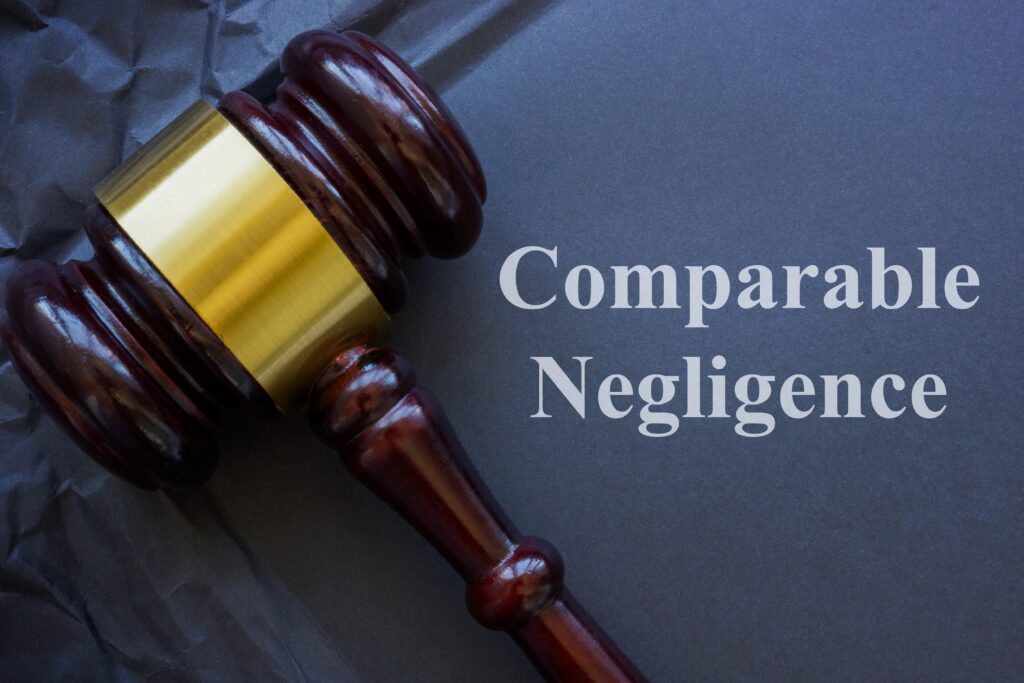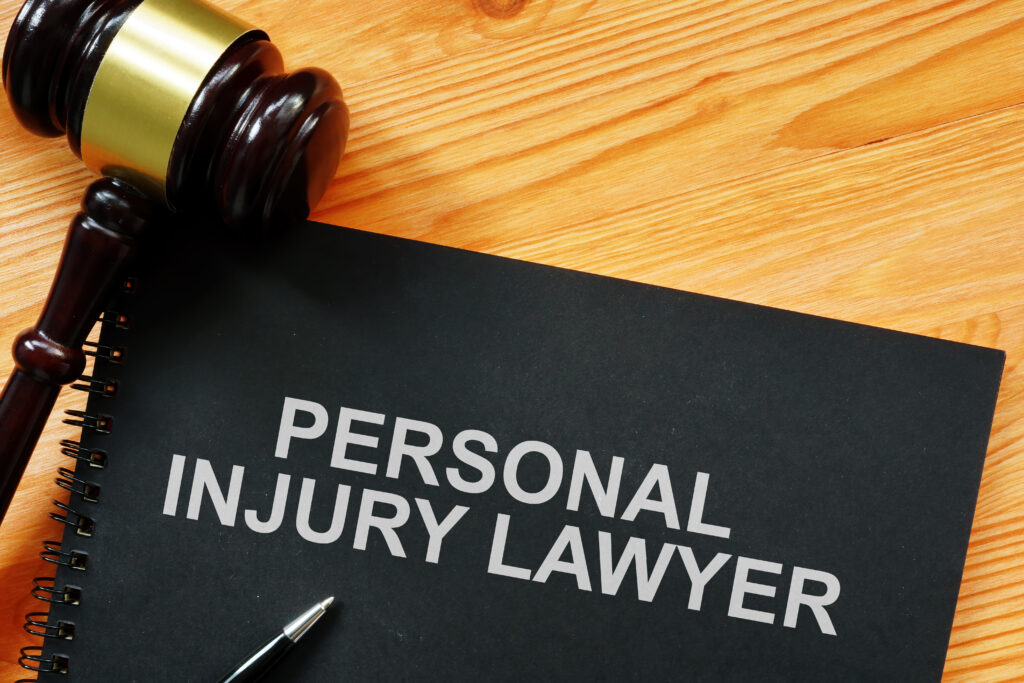You Were in an Accident and Someone Was Hurt. Here’s What to Do Now.
If you have an accident in which someone is injured, your focus must shift from the shock of the event itself to the deliberate actions required to protect your future.
Once you are home, the first steps involve documenting everything you can remember about the accident and your injuries, organizing the paperwork you already have, and understanding a fundamental truth: the other driver's insurance company is not on your side. Their primary objective is looking after their bottom line, not yours.
The process of seeking compensation is complicated by design. You will face short deadlines for filing claims and a high burden of proof to show the other party was at fault. In legal terms, this is based on the concept of negligence, which is the failure to exercise the care that a reasonable person would in similar circumstances.
However, securing your physical and financial recovery is possible. The path forward involves methodically building a case that demonstrates the full and true extent of your damages—a task you should not have to figure out while you are healing from your injuries. This is where an experienced Phoenix personal injury lawyer and a dedicated legal team become your most important asset.
Let our team at Gallagher & Kennedy handle these legal issues for you. We’ll help you understand your rights and options. Call us for a free, confidential consultation at (602) 530-8400.
Contact us for a free consultation
The First Steps to Take From Home After an Injury Accident
1. Focus on Medical Care First and Foremost

- Follow all medical advice: Keep every single appointment, fill every prescription, and follow through on all referrals to specialists. Any gaps in your treatment history can be used by an insurance company to argue that your injuries are not as severe as you claim or that something else caused them. Consistency is key.
- Don't downplay your pain: When you talk to a doctor, be specific. Instead of saying "my neck hurts," describe the sensation. Is it a sharp, stabbing pain when you turn your head to the left? Is it a dull ache that radiates into your shoulders and gives you a headache at the base of your skull?
2. Create an "Accident File"
- Write down everything you remember: Do this now, while
- the memory is as fresh as possible. What did you see, hear, and feel in the moments before, during, and after the crash? Where were you going? What was the weather like? What did the other driver say to you or to the police? No detail is too small or insignificant.
- Gather all documents: This file will become your central hub of information. It should include the police report or driver information exchange slip, any photos or videos you took at the scene, and the contact information for any witnesses. As medical bills, pharmacy receipts, and letters from insurance companies arrive, add them to this file. Organization now will save you immense stress later.
3. Understand Your Legal Reporting Duties
Even after you have left the scene, it is important to know that Arizona law has strict requirements for accidents. Any crash that results in an injury or death must be reported to the police. If for some reason law enforcement did not come to the scene, you should contact the appropriate agency to ensure a report is filed.
Who Am I Dealing With? A Guide to the Key Players
After an accident, you will suddenly find yourself in a world of unfamiliar people and processes. You will be dealing with multiple parties, each with a different role and a different objective.
The Other Driver's Insurance Adjuster
As mentioned in the introduction, it’s important to be aware that this person's primary role is to protect their company's financial interests. They are evaluated and rewarded based on their ability to resolve claims for the lowest possible amount. They may seem friendly, empathetic, and helpful (and most adjusters are indeed wonderful people), but their professional goal is to settle your claim for as little money as possible, as quickly as possible.
Your Own Insurance Company
While you pay them premiums for coverage, their incentives are also complicated. You must report the accident to them, but how you do so matters. In situations involving an uninsured or underinsured motorist, your own insurance company can sometimes step into the shoes of the at-fault party's insurer, and your relationship can become adversarial. It is wise to be careful and factual in your communications with them, just as you should be with anyone else’s.
Your Medical Providers
Your doctors, physical therapists, and other healthcare professionals have one focus: your physical recovery. They are your partners in healing. They also play an unintentional role in your legal case by documenting your injuries, treatment, and progress. These medical records form the evidentiary backbone of your injury claim, providing objective proof of what you have been through.
Your Personal Injury Attorney
Our role is to be your exclusive advocate and guide through this entire process. We act as a shield, managing all communication with the insurance companies so you don't have to. We are the ones who gather the evidence, consult with experts, and build the case needed to demonstrate the full value of your claim.
The Insurance Adjuster Called. What Should I Say?
It will happen sooner than you think. An adjuster from the at-fault driver's insurance company will call you. They are skilled at building rapport and asking questions that seem harmless but are designed to elicit responses that could damage your claim.
DON'T: Give a Recorded Statement.
You are under no legal obligation to provide a recorded statement to the other party's insurer. Politely and firmly decline.
DO: Provide Only Basic Information.
You can confirm your name, address, phone number, and the make and model of your car. That is it. You do not need to discuss where you were going, what you were doing, or any other details of the accident.
DON'T: Discuss Your Injuries.
Injuries like whiplash or a concussion can take days or even weeks to fully manifest. If you tell an adjuster "I'm fine" or "I just have a sore neck," they will document that statement and use it to deny claims for more serious issues that appear later on.
DO: State That You Are Still Treating and Will Not Discuss Injuries.
A simple, firm, and repeatable phrase is your best tool: "I am still under a doctor's care and will not be discussing my injuries at this time." You do not need to elaborate or justify this position.
DON'T: Accept a Quick Settlement Offer.
Early settlement offers are almost always a lowball amount offered before the true, long-term cost of your injuries is known. Cashing that check means signing away your right to any future compensation for this accident, even if you later discover you need surgery.
DO: Refer Them to Your Attorney.
The most powerful thing you can say is, "Please direct all future communications to my lawyer." Once you hire Gallagher & Kennedy, we take over these conversations. This becomes our problem, not yours, allowing you to focus completely on your health.
The Legal Process, Explained
An injury accident sets in motion a complex legal process, not just a simple insurance claim.
Arizona's "Comparative Fault" Rule

In Arizona, you can recover damages even if you were partially at-fault for the accident. Our state follows a "pure comparative fault" system. In simple terms, this means your final compensation award is simply reduced by your percentage of fault.
For example, if you are found to be 10% at fault, your $100,000 award would be reduced by 10% to $90,000.
The Clock is Ticking: The Statute of Limitations
In Arizona, you generally have two years from the date of the accident to file a personal injury lawsuit, according to Arizona Revised Statutes § 12-542. While that might sound like a long time, it is not. Building a strong, evidence-rich case takes a significant amount of time.
A Critical Exception: There is a much shorter and stricter deadline if your claim is against a government entity. This could be a city bus, a state-owned vehicle, or an accident caused by a dangerous road condition. In these cases, you have only 180 days to file a formal Notice of Claim under A.R.S. § 12-821.01. Missing this deadline almost always completely bars you from recovering anything, no matter how severe your injuries are.
The True Cost of an Injury
The financial impact of a serious injury goes far beyond the initial emergency room bill. It includes future surgeries, months or years of physical therapy, prescription medications, and modifications to your home or vehicle. It also includes lost wages from time off work and, in serious cases, a diminished capacity to earn a living for the rest of your life. A quick settlement rarely accounts for these future, life-altering costs.
How a Personal Injury Lawyer Builds a Case Designed to Protect Your Future
When you hire Gallagher & Kennedy, you are not just getting a negotiator to deal with the insurance company. You are getting a team that meticulously prepares your case for the possibility of a trial from day one. This thorough preparation persuades insurance companies to make fair and meaningful settlement offers. They know we are ready.
This is what we do behind the scenes:
- We conduct a deep investigation: We find and interview witnesses whose memories are fresh. We subpoena traffic camera footage, cell phone records, and vehicle data. In complex cases, we may even hire accident reconstructionists to create a scientific model of what really happened.
- We manage all communication: You will not have to speak to an insurance adjuster again. We handle every phone call, email, letter, and request for information. This protects you from the stress of these interactions and from inadvertently saying something that could harm your case.
- We calculate your total damages: We work closely with your doctors to understand not just your current medical bills, but your future medical needs as well. We may consult with vocational rehabilitation specialists and financial experts to calculate your lost earning capacity over your lifetime. This goes far beyond simply adding up receipts; we pursue both economic damages (like medical bills and lost wages) and non-economic damages (like pain, suffering, and loss of enjoyment of life).
- We handle all the legal work: We ensure every deadline is met, all paperwork is filed correctly with the right courts and agencies, and all of Arizona's complex legal requirements are satisfied. This is a significant administrative burden that you should not have to carry while recovering from an injury.
- We work on a contingency fee basis: Our firm fronts all the costs of building your case, from filing fees to expert witness costs. You pay us nothing unless and until we recover compensation for you. Our fee is a percentage of the recovery we obtain on your behalf.
FAQ for Arizona Injury Accidents
What if the other driver has no insurance or not enough insurance?
This is a common and stressful situation. In this case, we would look to your own insurance policy for Uninsured/Underinsured Motorist (UM/UIM) coverage. This is specific coverage you have paid for to protect you and your family in this exact scenario. We help you navigate the process of making a UM/UIM claim with your own insurer.
How long will my personal injury case take?
The timeline varies greatly depending on the complexity of the case. A straightforward case with clear liability and moderate injuries might settle in a few months. A more complex case involving severe injuries, disputed fault, or the need for a lawsuit could take a year or more. Be wary of any lawyer who promises a quick result; our priority is securing a full and fair result, not a fast one.
Why can't I just handle the claim myself?
You are at a significant disadvantage. Insurance companies are multi-billion dollar businesses with teams of adjusters, investigators, and lawyers all working to protect their bottom line by paying out as little as possible. Without a deep understanding of Arizona personal injury law, the tactics they use, and the true value of your claim, you will likely end up with a settlement that does not cover your long-term needs. Our clients benefit from our knowledge of local legal procedures and our experience in this area of law.
Your Next Step is to Protect Your Rights

Taking action to understand your legal rights is the first and most important step toward regaining stability for yourself and your family. Let our team at Gallagher & Kennedy lift the legal and administrative burden from your shoulders so you can focus on what truly matters: your recovery.
Call us today for a no-obligation, confidential consultation. We are here to listen to your story and provide clear, straightforward answers to your questions. Contact us at (602) 530-8400.